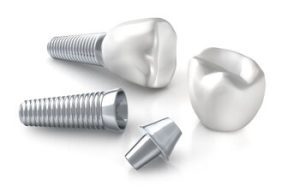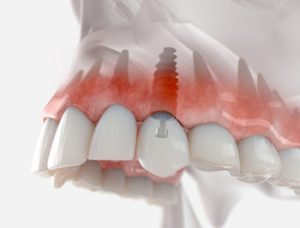Dental Implant, Thailand: Why You Should Be Cautious And What To Do Instead

Are you considering getting a dental implant? Thailand is perceived as one of the most popular destinations for this procedure. While dental tourism may seem appealing at first, it’s crucial to understand all the potential dangers and pitfalls of seeking implant dentistry abroad.
Dental implants stand as an excellent solution for replacing missing teeth, offering both aesthetic and functional benefits.
However, it is critical to carefully analyse all of the advantages and downsides so that you may make smarter judgements regarding your precious oral health.
This article will tap into the risks of getting dental implants in Thailand and why dental implant treatment in Australia is the wiser and safer choice for many people, particularly Australians.
Join us as we investigate the important considerations before travelling to Thailand for dental implants.
Top 5 Risks Of Dental Implants In Thailand
 When contemplating dental tourism, you must know the risks and challenges of getting dental implants in Thailand. While this Southeast Asian destination is known for its stunning beaches and rich culture, the quality and safety of dental care may not always meet international standards.
When contemplating dental tourism, you must know the risks and challenges of getting dental implants in Thailand. While this Southeast Asian destination is known for its stunning beaches and rich culture, the quality and safety of dental care may not always meet international standards.
Here are some of the top major risks associated with getting dental implants in Thailand:
1. Quality of Care
Dental facilities in Thailand can vary significantly in terms of quality and adherence to safety standards. While there are reputable clinics, others may not have the same level of expertise or equipment found in countries like Australia.
2. Language Barriers
Communicating with dental professionals can be challenging, as language barriers may hinder effective communication about your dental needs, concerns, or post-operative care instructions.
3. Infection Control
In some cases, there have been reports of inadequate infection control measures in dental clinics abroad. This raises concerns about the risk of infections during or after the implant procedure.
4. Limited Accountability
Should any complications arise after your return to Australia, seeking recourse or follow-up care can be complicated, as you may be dealing with distance and potentially different legal systems.
5. Post-Operative Issues
Dental implant procedures require careful post-operative care to ensure a successful outcome. Getting timely follow-up care and addressing complications can be challenging when you’re far from the clinic.
It’s important to recognise that not all dental clinics in Thailand pose these risks, and there are undoubtedly reputable establishments providing excellent care. However, navigating this landscape can be quite challenging, and the potential consequences of inadequate care are significant.
8 Reasons Australia Is The Optimal Choice For Dental Implants
Now that we’ve discussed the potential risks of getting dental implants in Thailand, let’s explore why Australia stands out as the superior choice for dental implant treatments, especially for Australians.
1. High Standards Of Dental Care
Australia is renowned for its world-class healthcare system, including dental care. Australian dental clinics adhere to rigorous quality, safety, and infection control standards. Dentists in Australia must meet strict licensing and certification requirements, ensuring patients receive the highest standard of care.
2. Experienced Dental Experts
Australian dental professionals are highly trained and experienced in dental implant procedures. They undergo extensive education and training in the latest implant technologies and techniques, providing patients with high expertise.
3. State-Of-The-Art Facilities
Dental clinics in Australia are equipped with state-of-the-art technology and modern facilities, ensuring that patients have access to the latest technological advancements in dental implant treatments.
4. Effective Communication
Communication between patients and dental professionals is straightforward in Australia, as there are no language barriers. Patients can discuss their needs, concerns, and treatment options clearly and comfortably.
5. Accountability
One of the significant advantages of choosing Australia for dental implants is the accountability factor. If any issues arise during or after the procedure, you have easy access to follow-up care and can seek recourse if necessary. Australian dental professionals prioritise patient safety and satisfaction.
6. Stringent Infection Control
Australian dental clinics adhere to stringent infection control protocols to minimise the risk of infections during and after the implant procedure. This commitment to patient safety is a hallmark of dental care in Australia.
7. Post-Operative Support
Dental implant procedures require careful post-operative care. In Australia, patients receive comprehensive guidance on post-operative care, and dental professionals are readily available for follow-up appointments to see your progress and address any concerns.
8. Peace Of Mind
Choosing dental implants in Australia provides peace of mind, knowing that you are receiving high-quality care from experienced professionals in a safe and reliable healthcare system.
While it may be tempting to seek lower-cost alternatives abroad, the superior quality, safety, and accountability of dental care in Australia make it the preferred choice for dental implant treatments.
5 Drastic Red Flags To Spot When Choosing Dental Care
 Before considering getting treatment from Thailand, dental implants for example, it’s essential to be acquainted with all the potential red flags that can indicate subpar dental care.
Before considering getting treatment from Thailand, dental implants for example, it’s essential to be acquainted with all the potential red flags that can indicate subpar dental care.
It’s crucial to exercise caution and look out for the following warning signs:
1. Lack Of Regulation
Thailand’s dental industry may not be as regulated as in countries like Australia. This can lead to different variations in the quality of care provided at different dental clinics.
2. Unknown Materials
Patients may not always be aware of the materials used in their dental treatments, which can lead to uncertainty about their dental implants’ long-term durability and quality.
3. Unclear Pricing
Pricing structures for dental procedures in Thailand may not always be transparent, and patients may encounter unexpected additional costs.
4. Limited Legal Recourse
Patients who have disputes with dental clinics in Thailand may have limited legal recourse, particularly if they have returned to their home country.
5. Uncertainty About Treatment Plan And Follow-Up Care
Patients may not have a clear plan for their journey from the moment they start until they finish or know where to seek assistance if complications arise.
10 Green Flags To Spot When Seeking Professional Dental Care
In contrast to the potential red flags associated with seeking a dentist in Thailand, Australia boasts several green flags that signify professional and high-quality dental services.
Australians have the advantage of a well-regulated and advanced dental healthcare system.
Here are some green flags that you can expect when seeking dental implant treatment in Australia:
1. Qualifications And Awards
Look for dentists who hold relevant qualifications from reputable institutions. Awards or recognitions in the field of dentistry can also indicate excellence and commitment to providing quality care. Dentists with advanced certifications or memberships in professional organisations are dedicated to staying updated on the latest dental techniques and standards.
2. Positive Reviews And Testimonials
Online reviews and patient testimonials can provide valuable insights into the quality of service a dental clinic offers. Go through reviews from previous patients to gauge their satisfaction and experiences.
3. Transparent Pricing
A trustworthy dental clinic will be transparent about its pricing and provide detailed cost estimates for treatments. They should also offer various payment options and work with your insurance provider, if applicable.
4. Personalised Treatment Plans
Every patient’s dental needs are unique. Look for a dental clinic that creates personalised treatment plans tailored to your oral health requirements and goals.
5. Commitment To Patient Education
A dental clinic prioritising patient education will ensure you fully understand your treatment options, procedures, and oral hygiene practices. They should be willing to answer your questions and provide clear explanations.
6. Emergency Dental Care
Dental emergencies can happen at any time. A reliable dental clinic should offer emergency services to address unexpected dental issues promptly.
7. Accessible Location
Consider the dental clinic’s location. To meet your schedule, it should be conveniently placed and quickly accessible.
8. Positive Atmosphere
A welcoming and comfortable environment can significantly impact your dental experience. Look for a clinic that prioritises patient comfort and provides a friendly atmosphere.
9. Comprehensive Services
A full-service dental care clinic that provides a wide array of dental services, from preventive care to complex procedures, can provide continuity of care throughout your oral health journey.
10. Clear Communication
Effective communication between you and the dental team is vital. A good dental clinic will listen to your concerns, explain treatment options clearly, and involve you in decision-making.
11. Association With Professional Bodies
The highest moral and professional standards are typically upheld by participants in dental groups like the Australian Dental Association (ADA).
Just for the record, the Australian Society of Implant Dentistry (ASID), the International Association for Orthodontics (IAO), the Australasian Academy of Dento-Facial Aesthetics (AADFA), and the Australian Dental Association (ADA) are all associations that My Local Dentists, Sydney, happens to be a member of! (Amazing, right?)
8 Things To Consider When Choosing A Type of Dental Implants
Choosing between types of dental implants in Australia is a crucial decision that should be based on your individual needs and oral health requirements.
Here are key elements to consider when selecting the right type of dental implants.

1. Consultation With An Experienced Dentist
Your road to finding the best dental implant in Australia begins with a comprehensive consultation with an expert dentist. The dentist will analyse your oral health, evaluate your unique dental requirements, and discuss your treatment goals at this initial session. This consultation session allows you to ask questions, voice concerns, and gain a better understanding of the various solutions.
2. Bone Density And Jaw Structure
The type of dental implant that is best for you will depend significantly on the health of your jaw bone. To increase bone density and lay a solid foundation for implant implantation, patients may need additional treatments like bone grafting. Your dentist will assess your bone structure and recommend the appropriate implant type.
3. Number Of Missing Teeth
The number of missing teeth you need to replace will influence the choice of dental implant. Single tooth implants are ideal for replacing individual missing teeth, while options like a full mouth or full arch implants are designed for patients with extensive tooth loss.
4. Location Of Missing Teeth
The location of your missing teeth also matters. Front teeth, for example, are highly visible and require dental implants that provide a natural appearance. Your dentist will consider the aesthetic aspect when recommending the right implant type for your case.
5. Treatment Objectives
Communicate your treatment objectives with your dentist. Whether you prioritise aesthetics, functionality, or a combination of both, your dentist will tailor the treatment plan to align with your goals.
6. Cost Considerations
Dental implant costs can vary based on the type of implant, materials used, and complexity of your procedure. While it’s essential to consider your budget, prioritise the long-term benefits and success of the implant over upfront costs. Dental implants are a durable and cost-effective solution in the long run.
7. Overall Health And Medical History
Your overall health and medical history can impact the suitability of certain dental implant options. Discuss any underlying health conditions or medications you are taking with your dentist to ensure your chosen implant type is safe.
8. Lifestyle And Habits
Your lifestyle and habits, such as smoking or teeth grinding, can affect the longevity of dental implants. It’s essential to inform your dentist of any habits or behaviours that may impact the success of the implants so that they can make appropriate recommendations.
You can access many dental implant options in Australia, including single tooth implants, dental implant bridges, and Full Arch On 4 treatment. Your experienced dentist will guide you through the decision-making process, providing the information and recommendations you need to choose the right type of dental implant for your unique case.
Remember that the ultimate goal is to accomplish a healthy, functional, and dazzling smile that enhances your quality of life. By carefully considering these factors and working closely with your dentist, you can make wiser decisions that lead to better success rates with your dental implants treatment.
Frequently Asked Questions
1. What are dental implants?
Dental implants are artificial tooth roots designed using biocompatible materials, like titanium, and surgically placed into the jaw bone. They serve as a stable foundation for prosthetic teeth.
2. How long do dental implants last?
With the right maintenance and care, dental implants can last a lifetime. Longevity depends on regular checkups and proper dental hygiene habits.
3. Are dental implants suitable for everyone?
Dental implants are a reliable and viable option for many individuals. However, your eligibility depends on factors such as your overall health, full jaw bone density, and specific dental needs. A thorough evaluation by a qualified dentist will determine your suitability.
4. Is dental implant treatment painful?
Dental implant surgery is mostly performed under local anaesthesia, ensuring you don’t feel pain during the procedure. Some discomfort and swelling are common after surgery but can be managed with prescribed pain medication.
5. How much do dental implants exactly cost in Australia?
The cost of your dental implants treatment in Australia can significantly change depending on factors like the number of implants required, the type of implant, and the location of the dental centre. A single dental implant is averaged to cost $2,850. It’s essential to discuss pricing with your chosen dental clinic.
6. How long does the dental implant process take?
The timeline for dental implant treatment varies from patient to patient. On average, the entire process, including implant post placement, healing, and placement of the final prosthetic teeth, can take several months. Some patients may be eligible for immediate load implants that reduce treatment time.
7. Are there any hazards to getting dental implants?
While dental implant surgery is typically safe, there are hazards associated with any surgical operation. Infection, implant failure, nerve injury, and surgical complications are a few examples. These risks are minimised when an experienced dentist performs the treatment.
8. Can I receive dental implants if I have gum disease or bone loss?
Gum disease and bone loss can complicate dental implant treatment, but they don’t necessarily disqualify you. Some dental implants cases may require additional procedures, such as bone grafting or periodontal treatment, to prepare for implant placement.
9. What is the difference between dental implants and traditional dentures?
Dental implants are surgically anchored in the jaw bone, providing stability and preventing bone loss. Traditional dentures are removable and sit on the gums. Implants offer a more stable and permanent solution.
10. What is the success rate of dental implant procedures in Australia?
Dental implant procedures in Australia have a high success rate, typically reaching 95%. The success of your procedure depends on factors like your oral health, the skill of your local dentist, and adherence to post-operative care instructions.
Australia vs Thailand Dental Implant Treatment: Making The Wiser Decision
Regarding dental implant treatments, Australia stands as a beacon of excellence, offering world-class care and unparalleled expertise. While some individuals may be enticed by the allure of overseas options like Thailand, weighing the potential dangers and risks against the many advantages of choosing dental implants in Australia is crucial.
While cost savings may make dental treatment in countries like Thailand seem appealing, the potential dangers and uncertainties associated with overseas care should not be underestimated. Compromising quality and safety for lower prices can lead to costly complications and inferior results.
When considering dental implant treatment, remember it is an investment in overall oral health and well-being. The peace of mind that comes with knowing you’re receiving the highest standard of care is invaluable.
In Australia, you can achieve natural-looking results, regain your confidence, and enjoy a healthier smile with the assurance that your dental implant treatment is of the highest quality.
If you’re ready to wear your new smile with confidence, don’t hesitate to call My Local Dentists and book your appointment in one of our five modern clinics across Sydney.
Sources:
About Dental Implants | Bupa Dental Care. www.bupa.co.uk/dental/dental-care/treatments/dental-implants.
“ADA Policies – Elective Overseas Dental Treatment.” Australian Dental Association, ada.org.au/policy-statement-2-2-6-elective-overseas-dental-treatment.
Colgate. “Dental Tourism: 5 Risks of Traveling for a Dental Procedure.” Colgate, Mar. 2022, www.colgate.com/en-us/oral-health/dental-visits/dental-tourism-5-risks-of-traveling-for-a-dental-procedure#.
Hart, Lydia. “Dental Implants – We Drill Down Into the Potential Costs.” Canstar, June 2022, www.canstar.com.au/health-insurance/dental-implants.
How to Find a Dentist – Tips for Choosing a New Dentist | Humana. www.humana.com/dental-insurance/dental-resources/how-to-choose-a-dentist.
Raikar, Sonal, et al. “Factors Affecting the Survival Rate of Dental Implants: A Retrospective Study.” Journal of International Society of Preventive and Community Dentistry, vol. 7, no. 6, Medknow, Jan. 2017, p. 351. https://doi.org/10.4103/jispcd.jispcd_380_17.
